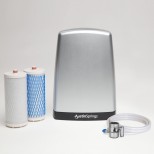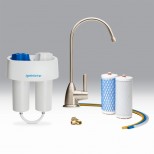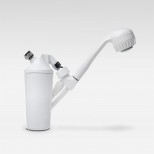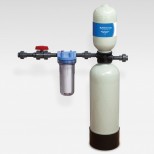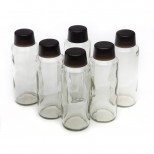Drinking a healthy amount of clean water each day helps stave off negative health effects of dehydration and may, if done right, also help to reduce a person’s daily caloric intake, as well.
Some negative effects of not enough water in a person’s diet include developing of excess body fat, loss of muscle tone, gastrointestinal difficulties, issues with kidney function, increased blood pressure, joint discomfort, and cramping of muscles.
Many researchers believe that despite the well-known effects of dehydration, a great many of us go about our lives not taking in a sufficient amount of water to prevent the ill effects of dehydration.
- Water helps flush out waste products that if left in the human body would certainly poison a person.
- Water aids in digestion by helping to dissolve much needed nutrients so they can get carried throughout the body and delivered to locations where the body needs them.
- Lack of water in the body means the body has a reduction in its ability to cool itself via perspiration.
- Water acts as a lubricant in the body and allows joints to glide freely during motion.
- Replacing one’s normal mealtime beverages with water can have a pronounced effect on the waistline by knocking the calories associated with one’s normal mealtime beverages off his or her daily tally of calories consumed.
- Though not proven, necessarily, by any scientific study (that we know of), water consumed with a meal can also act as an appetite suppressant by providing ‘filler’ for a person’s stomach, making a person feel full sooner, and causing them to therefore stop eating sooner than if they had drank nothing with their meal.
Unsure if you consume enough water? If you find yourself experiencing low urine quantities, darker or more highly colored urine, pungent smelling urine, or not having to urinate all that often during the day you may suffer from some level of dehydration.
Other dehydration symptoms may include becoming fatigued easily, headaches starting out of the blue and apparently for no reason, faster than normal heart rate, an unusually dry mouth, difficulty concentrating on tasks at hand, trouble remembering things, and/or dizziness spells.
Tips for staying hydrated?
- DRINK WATER.
- Rather than keeping a soda or other beverage handy, replace that beverage with a container of water.
- Substitute water for your usual at-meal beverage.
- Sports drinks serve as an excellent way of replacing electrolytes after a good workout (or weekend of heavy alcohol consumption…) but for everyday hydration needs water may work far better since the body really should not need extra electrolytes on a daily basis and would therefore attempt to flush them out — thus defeating the purpose of drinking a sports drink simply for hydration purposes.
- Keep containers of clean drinking water in your fridge instead of sodas or other beverages. If it will take longer to prepare a non-water beverage than simply grabbing a glass of cold, refreshing water… then most of us will opt for the water.
- And finally, DRINK WATER.
Moral of the story?
Some say an ounce of prevention goes a long way… so just IMAGINE how far 64 ounces of water a day can take you!





